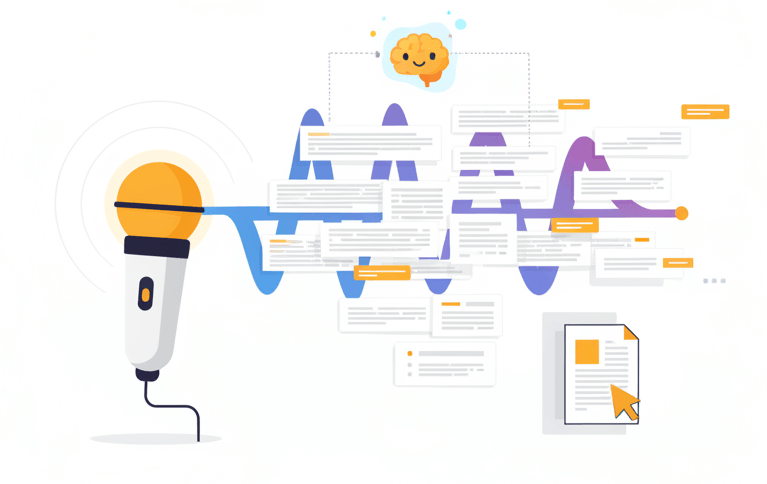
Specialized engine handles multilingual content and challenging broadcast conditions
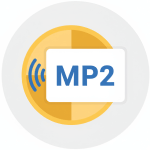
Native handling of MPEG-1 Layer II codec preserves fidelity from broadcast equipment and archival sources
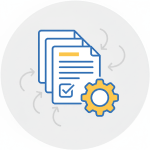
Process entire libraries of MP2 files in parallel, ideal for digitizing archives or historical collections
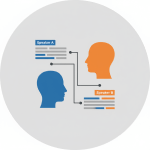
Identify and label different voices in talk shows, interviews, and panel discussions from MP2 recordings
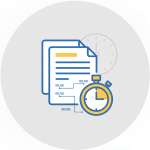
Sentence-level and word-level timestamps enable quick navigation and time-coded documentation for compliance
Three-step workflow turns broadcast and archival MP2 audio into structured documents
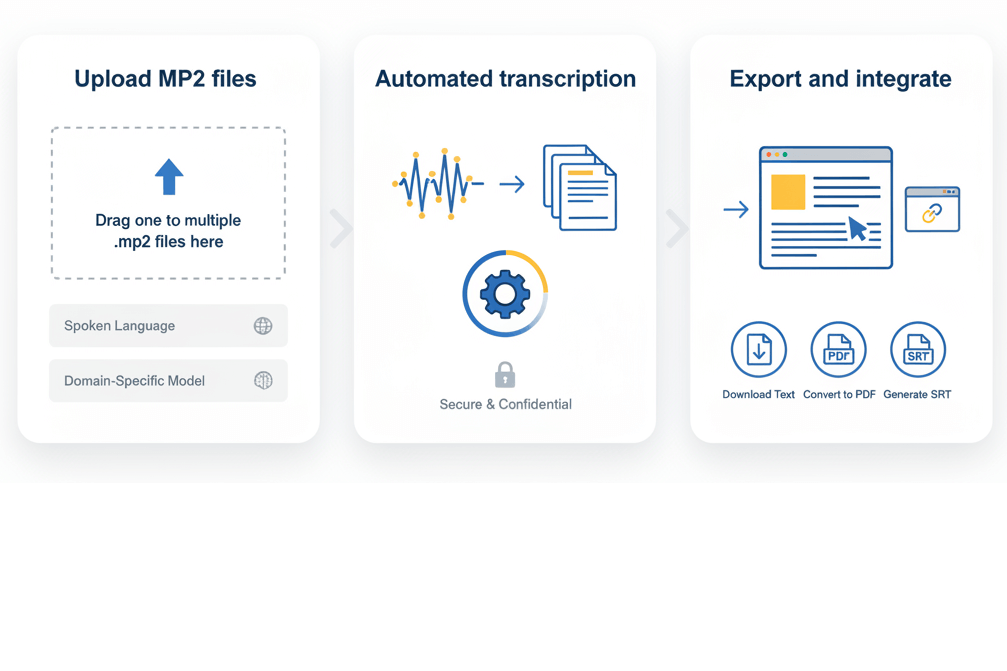
Drag one or multiple .mp2 files into the platform. Select the spoken language and choose a domain-specific model if the recording covers specialized topics such as news, political speech, or technical discussions.
The engine decodes the MPEG-1 Layer II stream and applies neural speech recognition trained on diverse acoustic conditions. Processing runs on secure infrastructure without manual intervention, preserving confidentiality for sensitive archival material.
Download the finished transcript as plain text, convert MP2 to PDF for reports, or generate MP2 to SRT subtitle tracks. The built-in editor allows corrections and annotation before final delivery.
MP2 remains a standard in professional broadcasting, archival storage, and legacy digital audio systems
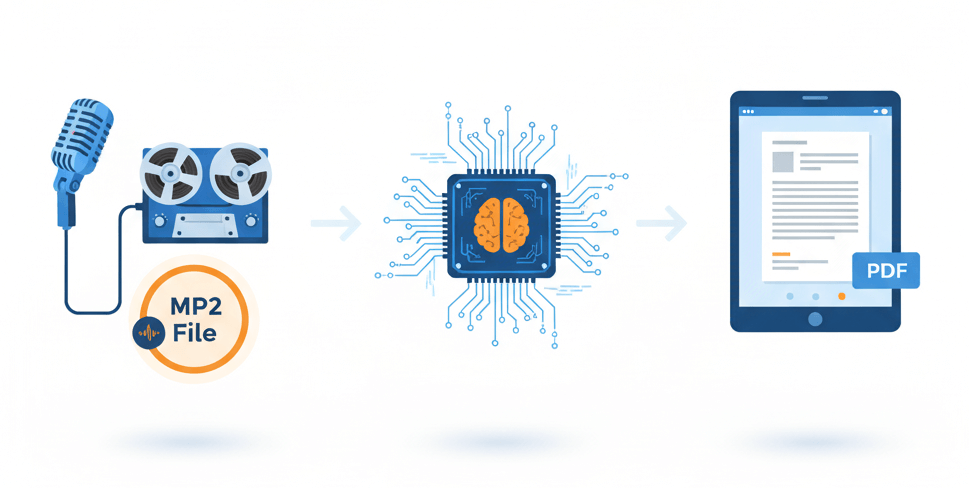
MP2 (MPEG-1 Audio Layer II) encodes audio with moderate compression, preserving intelligibility for spoken content. Broadcast stations adopted the format in the 1990s for satellite feeds and digital transmission. Many archives still hold decades of MP2-encoded news, interviews, and cultural programs.
Radio stations use MP2 for over-air digital radio (DAB) and studio workflows. Video production suites store MP2 as an audio track in MPEG transport streams. Government and institutional archives maintain large MP2 collections from the analog-to-digital transition era. Older recording devices and some European broadcast equipment output MP2 by default.
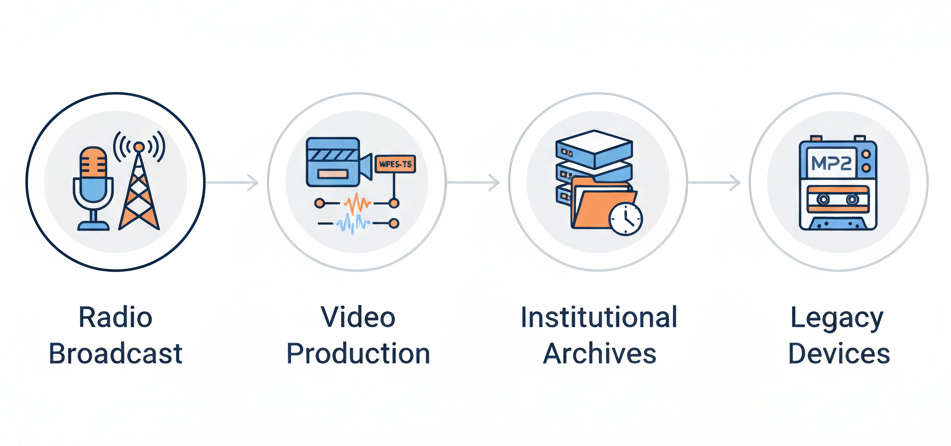
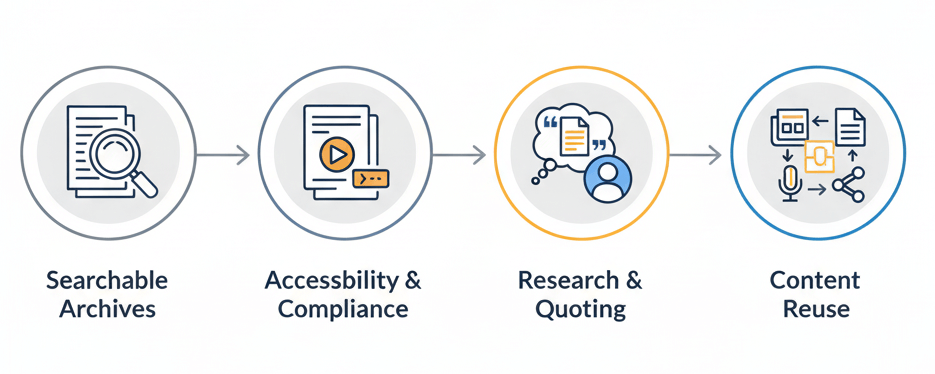
Converting MP2 to text unlocks historical broadcast material for research, compliance, and content reuse. Text indexes make thousands of hours searchable in seconds. Subtitles generated from MP2 to SRT conversions improve accessibility and meet regulatory requirements. Archivists gain full-text search across entire collections, and journalists can quote historical sources accurately.
Organizations rely on MP2 to text software to extract value from broadcast libraries, compliance logs, and production audio
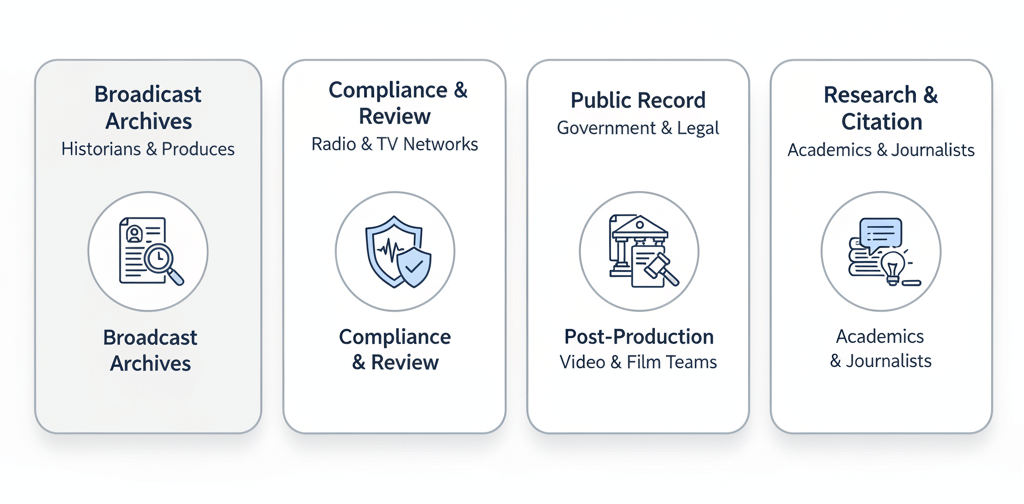
Upload the .mp2 file to the platform, select the language and any domain model, then start automated transcription. The system decodes the MPEG-1 Layer II stream and returns a text document ready for review and export.
The platform offers direct MP2 to PDF export. After transcription completes, choose PDF from the format menu to generate a formatted document with timestamps, speaker labels, and metadata suitable for archival storage or legal submission.
Batch processing handles multiple MP2 files in a single session. Upload an entire folder, apply consistent language and model settings, and the engine processes all files in parallel, delivering a complete transcript library.
The transcription engine timestamps every sentence. Exporting as SRT or VTT produces time-coded subtitle blocks that sync with the original MP2 audio track, ready for embedding in video players or broadcast systems.
Neural models trained on diverse broadcast conditions deliver professional-grade accuracy for clean MP2 recordings. The built-in editor allows archivists to verify and correct any passages before finalizing transcripts for cataloging or public release.